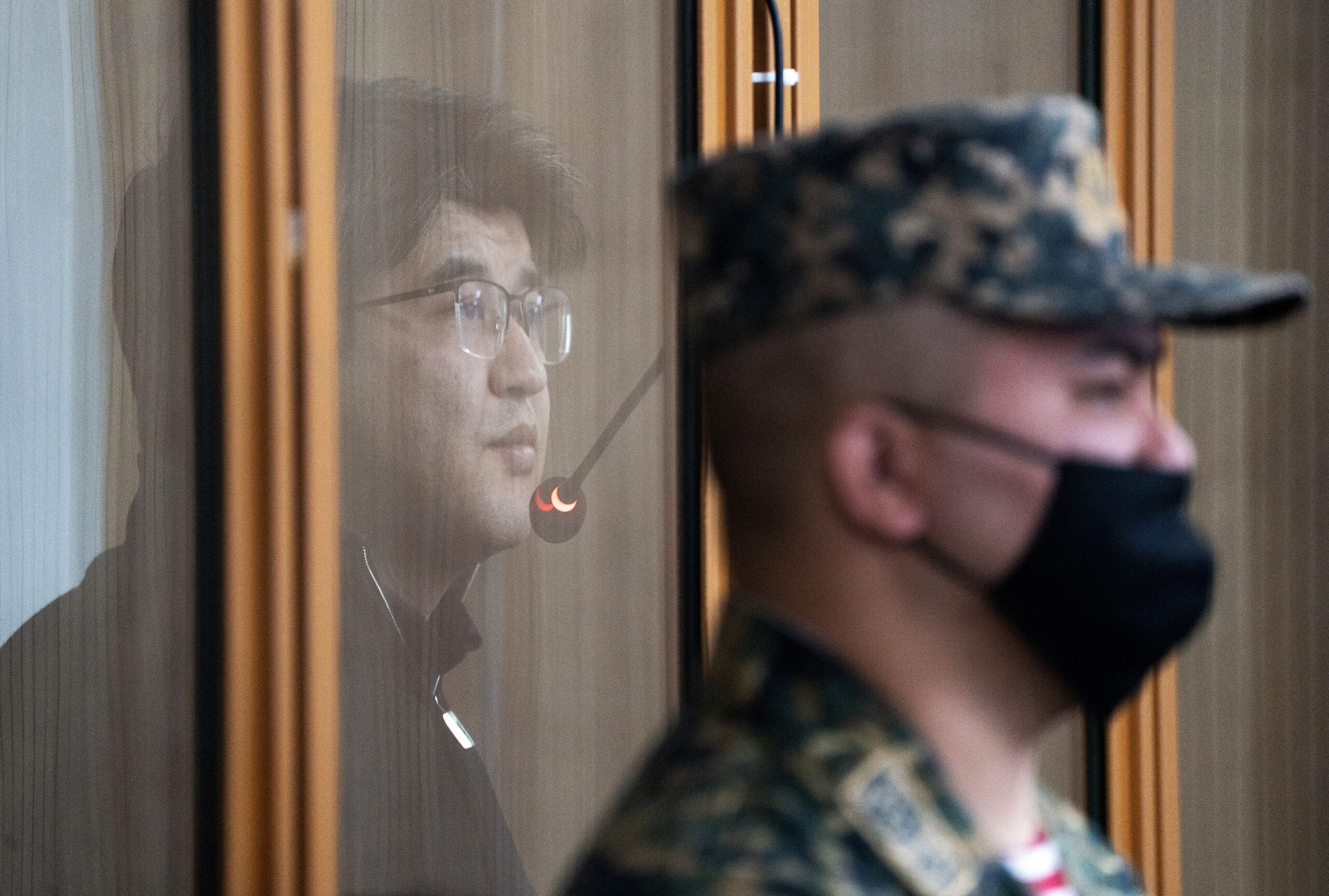Longevity, influence and the social media trap: Who do we trust with our health?
In a world where six-pack abs are flaunted more than six-point health plans, who are we really trusting […]

On November 9 last year, in the VIP room of a restaurant in Kazakhstan’s largest city, Almaty, Saltanat Nukenova was beaten to death by former minister Kuandyk Bishimbayev, her husband. Surveillance footage shows him viciously punching and kicking Nukenova in the restaurant, which is owned by his family, before dragging her by the hair to a separate room, where there were no cameras. As she lay dying in the suite, covered in her blood, Bishimbayev phoned a fortune-teller, who assured him his wife would be fine. When an ambulance finally arrived 12 hours later, Nukenova was pronounced dead at the scene. She was 31 years old.
Bishimbayev, 44, has admitted guilt. He has acknowledged causing her death, but said he had not acted “with exceptional cruelty”, which is what he has been charged with.
The ongoing murder trial, which is being livestreamed over social media like a dark reality show, has gripped not only Kazakhstan but also the countries in the area and beyond and led to debate about traditional gender roles.
According to the United Nations, about 400 women die from domestic abuse in the country each year. This figure could be higher, however, as some cases go unreported.
But this case now has brought a storm in the country. Bishimbayev, previously convicted of corruption, is a favourite of former President Nursultan Nazarbayev. He was pardoned by Nazarbayev himself, and now he’s being publicly tried by the new president. Bishimbayev, economy minister in 2016, had been sentenced in 2018 to 10 years in prison for pocketing state funds. However, he was granted an early release the following year by then-President Nazarbayev.
Nukenova’s friends and family say over the year they were together, she suffered prolonged physical and mental abuse at the hands of Bishimbayev, whom she tried leaving several times.
They often saw her with bruises and rope marks around her neck, and say the disgraced minister forbade her from speaking with them. He was jealous, they have said, and monitored the contents of her phone.
Her brother Aitbek Amangeldy has been in court every day to defend her memory from Bishimbayev’s defence team, which has portrayed her as a hysterical, promiscuous woman who drank heavily and provoked her husband.
Celebrities and everyday Kazakh women responded by posting photos of themselves holding glasses of wine, with the hashtag #ZaSaltanat, meaning For Saltanat.
The high-profile case has seen longstanding social norms questioned. A popular local rapper came under fire on social media after a 2022 podcast resurfaced, in which he agreed with the statement of another guest that “85% of rapes of women” are because the victim “happened to be at the wrong place, in the wrong clothes, at the wrong time”. The case saw the old generation that is still clinging to the patriarchy, and the younger generation that is completely intolerant and impatient to any violence.
Amid the public outcry, President Kassym-Jomart Tokayev on April 15 signed new legislation making striking women and children a criminal offence punishable by jail time. Previously, most instances of domestic violence were treated as lesser, civil infractions.
Police are now obliged to investigate all cases concerning domestic violence, even those the victim did not report. But the new law has met pushback from male lawmakers.
One deputy from the governing Amanat party suggested that if abusive husbands were to be placed in solitary confinement, so should their wives, for provoking them. Another proposed a special law just for men, who he argued do not have enough rights in Kazakhstan.
Young people believe the law is an important first step, even if it falls short of all the measures to protect women and children from domestic abuse. But others are disappointed it does not go far enough.
Interest in the livestreamed murder trial reaches beyond Kazakhstan’s borders. “We women of Russia are with you, women of Kazakhstan,” reads one top-rated YouTube comment under a video with more than seven million views. “Women of Kazakhstan, women of Armenia are with you!!” and “Belarus is also with you”, read others.
The case is particularly resonating in Russia, where certain forms of domestic violence were controversially decriminalised in 2017, wherein hitting a spouse or child is merely punishable by two weeks imprisonment or a fine if it causes only mild injury and happens once a year.
In 2021, the Russian Consortium of Women’s NGOs reported that almost 10,000 women were killed by their partners between 2011 and 2019; the authors of the study warned that the “most dangerous place for a woman is in Russia”.
Famous Russian TV presenter Ksenia Sobchak attended the Almaty court and sat next to the victim’s family.
A “quiet revolution” was taking place in Kazakhstan, she said. “The conservative part of the population literally dictated to women: don’t talk, don’t wash dirty linen in public, keep quiet, put up with it and fall in love,” she wrote on Telegram. “And now the girls have not only united in a campaign against domestic tyrants, but have also achieved the adoption of a special law.”
Sardana Guryeva, the human rights ombudsman for Yakutia in Russia’s far east, called for domestic violence to be recriminalized.
But people say that this is not enough. Laws are important, but the culture needs to also change on how women are treated.
https://www.rferl.org/a/kazakhstan-domestic-violence-narrative-control/32718925.html

In a world where six-pack abs are flaunted more than six-point health plans, who are we really trusting […]

In the era of social media, post-COVID, and with mental health at the forefront, a shift is taking […]